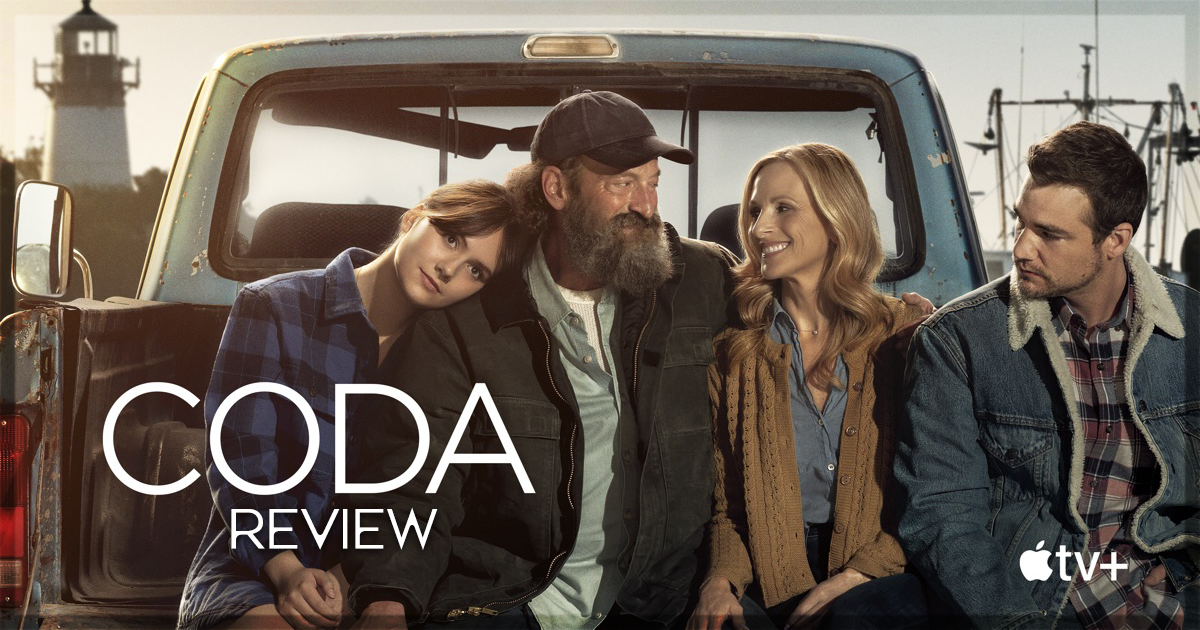In 2021, while the world was still heavily facing the COVID-19 pandemic, the Sundance Film Festival introduced its hybrid version with drive-ins in different states of the country, an online option, and the traditional Park City venue in Utah. Coming off a year of complicated production for the film industry. The 2021 Sundance edition surprised everyone with its biggest sales deal in the history of the festival for the U.S. Dramatic Competition winner, CODA, the Siân Heder remake of the French comedy-drama La Famille Bélier by Éric Lartigau. Apple TV+ auctioned the film for U$25 million to release it in the streaming months later. Soon after its streaming debut, the film went to an unprecedented awards campaign – the film got the major award without a nomination below the line, such as best editing. It won the Academy Awards for Best Picture, beating the Venice critical sensation The Power of the Dog by Jane Campion. For some cinephiles and critics, the win reminisces cases such as Crash in 2006 and Shakespeare in Love in 1999; however, CODA has more virtues than the ones cited above.
Narrating the story of Ruby (Emilia Jones), a fisherwoman who works with her family, a traditional fishermen family that is deaf. She is a CODA, the child of a deaf adult, and the only hearing person in her family. Then, she becomes responsible for the adult tasks of the family: dealing with sellers, translating medical appointments, and even ordering food in restaurants. She has immense responsibilities for a seventeen-year-old whose life revolves around facilitating the lives of her father, Frank (Troy Kutsur), mother Jackie (Marlee Matlin), and brother Leo (Daniel Durant). Balancing her exhausting reality between fishing and high school, she enrolls in the choir club as an extracurricular, once, ironically, singing is the most pleasurable activity in her life. As she receives the mentoring of the choirmaster Bernardo (Eugenio Derbez), Ruby realizes she wants to go to music school at the prestigious Berklee College, and she faces a moral dilemma between chasing her dream and staying home as a fisherwoman.
Focusing on the familiar drama, the discovery of her talent, and her place in the community, Hader follows a charismatic protagonist who is an outsider to a different family. Ruby is not as outspoken as her parents or chill as her brother. She has the burden of responsibilities and the notion of reality. Ruby knows about what people in the town talk about the deaf family and gets bullied because Ruby has learned to “talk like a deaf person” when enrolling in school as a child. The screenplay establishes a person who shields the other members from what other people comment about them. It is the manner that sets the drama and clashes between the characters. Leo wants to be more independent of Ruby and assume the responsibilities of the older child at home. The mother does not want her to leave for college because they are afraid of the hearing community, and those disputes bring weight to the decisions and conversations.
The acting becomes the paramount element of drama in an economic directing by Hader. She decides to assume a more uncomplicated approach to her visual choices, and it focuses on a realistic form. The film does not feature inventive camera motions or editing that imposes a specific rhythm; it all points toward the realism of the acting. In this sense, the familiar plot relies on Emilia Jones to conduct the protagonist’s journey of finding where she wants to head. She delivers a solid portrayal of the character, but the film showcases stellar work by Troy Kutsur. It is a performance entirely in American Sign Language (ASL) that drives the emotional tone through his expressivity. Alongside Matlin, the youngest winner and first deaf woman to win the Best Actress category at the Academy Awards, they depict a couple madly in love who are engaging to follow and fascinating enough to understand their motivations and reasons towards their children’s lives.
The film’s confidence in the acting and formal storytelling assumes a look and label of the independent works presented and loved at the Sundance Film Festival. It fits their stereotype of a solar and entertaining drama that usually hits their competitions. Even though it has the familiar clichés of the structure and lack of development for a core of characters, it is still a highly emotional film that enchants for its genuine moments. The Berklee audition scene is a beautiful moment that climaxes Ruby’s motivations and loves: music and her family. It is a moment that sums up the experience of their disabled family joining the community and Ruby exploring the outside world. It is a fitting conclusion to the film as a whole.
CODA got a subpar reputation after winning an industry award for a critically acclaimed and superior film. However, it is a lovely story about family and achieves its objective of telling this story with the emotional notes it requires. Troy Kutsur and his brilliant performance lift a heartwarming film.
CODA is available to stream at your digital retailer of choice.
Learn more about the film at the Apple TV+ site for the title.


